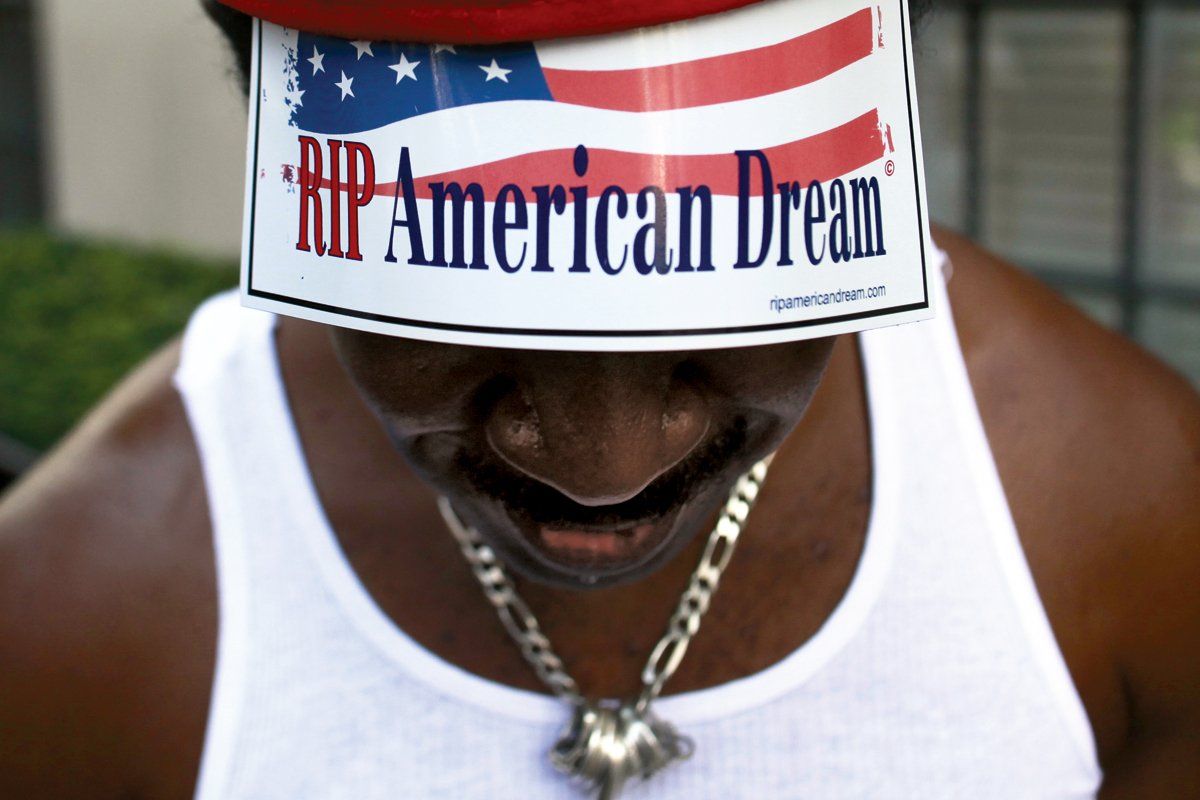
Media coverage of the Occupy Wall Street protests in lower Manhattan over the past few weeks might lead you to believe they were merely an excuse for a few hundred dim-witted hippies to make some trouble. There's been some of that. One knucklehead declared the U.S. government a greater evil than Al Qaeda while standing across the street from Ground Zero. An uninformed graduate student said she wasn't worried about the rain because "we have a tarp." (When told that the bailout program was actually called TARP, all she could think to say was, "How ironic.")
But those are the easy stories—the ones that convince us that the protesters are other, lesser people than ourselves. On last Tuesday's "Millionaires March" past the homes of such financial titans as Rupert Murdoch and David Koch, the protesters looked very different. They looked like Americans—ordinary people fed up by the unfairness that has infected our national life in recent years. It's the unfairness of reckless financiers triggering a brutally harsh economic crisis, accepting a government bailout, and then going on to become even richer while everybody else has been left to struggle.
There was a 49-year-old home attendant who has a son with the Army in Afghanistan. He marched with David Parsons, 59, a businessman with a peace symbol affixed to his cap and an American flag in his hand that he bought from a street vendor for a dollar. "It seemed a good investment," he reported.
Behind them came a subway motorman who said that underground suicides are up and that he worries some poor soul will be driven by hard times to jump in front of his train. "It is just a matter of time," he said.
At first it seemed that Marilyn Kosimar, an expensively attired woman wearing red-soled Louboutins, had chanced onto the march as she walked her lap dog. She confirmed that she resides in the tony neighborhood but also declared herself one of the protesters. "The unemployment rate is unacceptable," she said.
When the marchers came upon a construction worker in an orange hardhat who was perched on a scaffold, a protester handed up a leaflet reading, "We Are the 99%." He held it up for all to see, noting that he's been working since he was 14 and is now struggling to raise two young children. "I worry how it will be for them," he said.
There were more construction workers back down at Zuccotti Park, where the protesters have been encamped since Sept. 17. A 45-year-old ironworker named Rob Chamberlain brought a spud wrench that is usually employed to tighten huge bolts. He was using it as a paperweight to hold down leaflets in a gusting wind. He announced, "I've just been pissed off" since the economy imploded. "Pissed off at Wall Street, pissed off at D.C.," he said. "I've been waiting for something to happen."
That something is this protest, which was conceived by an activist group in Canada (Adbusters) but has now taken on a life of its own, with no leaders to disappoint the people, no particular agendas to exclude anyone, only a shared conviction that the present situation is unacceptably unfair."I'm pro-capitalism," Chamberlain said. "I just want it to work for everybody."
President Obama and congressional Democrats have offered words of support for the protests while trying to channel their energy and outrage for political gain. With 38 percent of the country saying it agrees with the demonstrators, that's hardly surprising. The question is whether it will work—or if, instead, those millions of Americans will merely end up wondering what took the politicians so long to gauge the country's mood.
Meanwhile, on the streets of New York, the protesters continue to tap into and express, sometimes despite themselves, the furious frustration that simmers just beneath the surface in America today. But anger isn't the only emotion coursing through the streets. There is also optimism—the hope that comes from people finally doing something in response to injustice. Even if it amounts to little more than saying, "We've had enough."
Uncommon Knowledge
Newsweek is committed to challenging conventional wisdom and finding connections in the search for common ground.
Newsweek is committed to challenging conventional wisdom and finding connections in the search for common ground.





